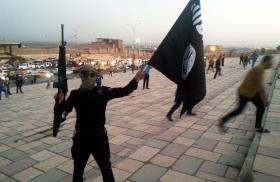
- Policy Analysis
- Counterterrorism Lecture
The Post-9/11 FBI: The Bureau's Response to Evolving Threats

Part of a series: Counterterrorism Lecture Series
or see Part 1: U.S. Efforts against Terrorism Financing: A View from the Private Sector
Read prepared remarks by the FBI's counterterrorism chief on how the Bureau assess the global terrorist threat ten years after 9/11 and how it is organizing its efforts.
On April 14, 2011, Mark F. Giuliano, assistant director of the FBI's Counterterrorism Division, discussed how the bureau is addressing the evolving terrorist threat at a special Policy Forum sponsored by The Washington Institute's Stein Program on Counterterrorism and Intelligence. The following is an excerpt from his prepared statement for the record.
"I'd like to take a few minutes to talk about the current state of the terrorism threat, the FBI's responsibility in neutralizing this threat, and the critical efforts we are undertaking with the Intelligence Community and law enforcement partners. I hope this will leave you with a better understanding of the FBI's role in countering terrorism, its commitment to disrupting individual and group plots, and its efforts to better collect and analyze intelligence to help us better understand and mitigate the terrorism threat.
"First, let me characterize the current threat environment as we see it and the challenges we face in understanding and getting in front of the threat. I do not think this nation has ever faced a more fluid, more dynamic, or more complex terrorism threat. We are seeing an increase in the sources of terrorism, a wider array of terrorism targets, a greater cooperation among terrorist groups, and an evolution in terrorist tactics and communication methodology. The long-term planning undertaken by senior core al-Qaeda leaders which led to the 9/11 attacks is much more difficult for them to attain in today's environment. It is replaced with somewhat less sophisticated, quick-hitting strikes that can be just as lethal but which take less funding, fewer operatives, less training, and less timing to execute...."




